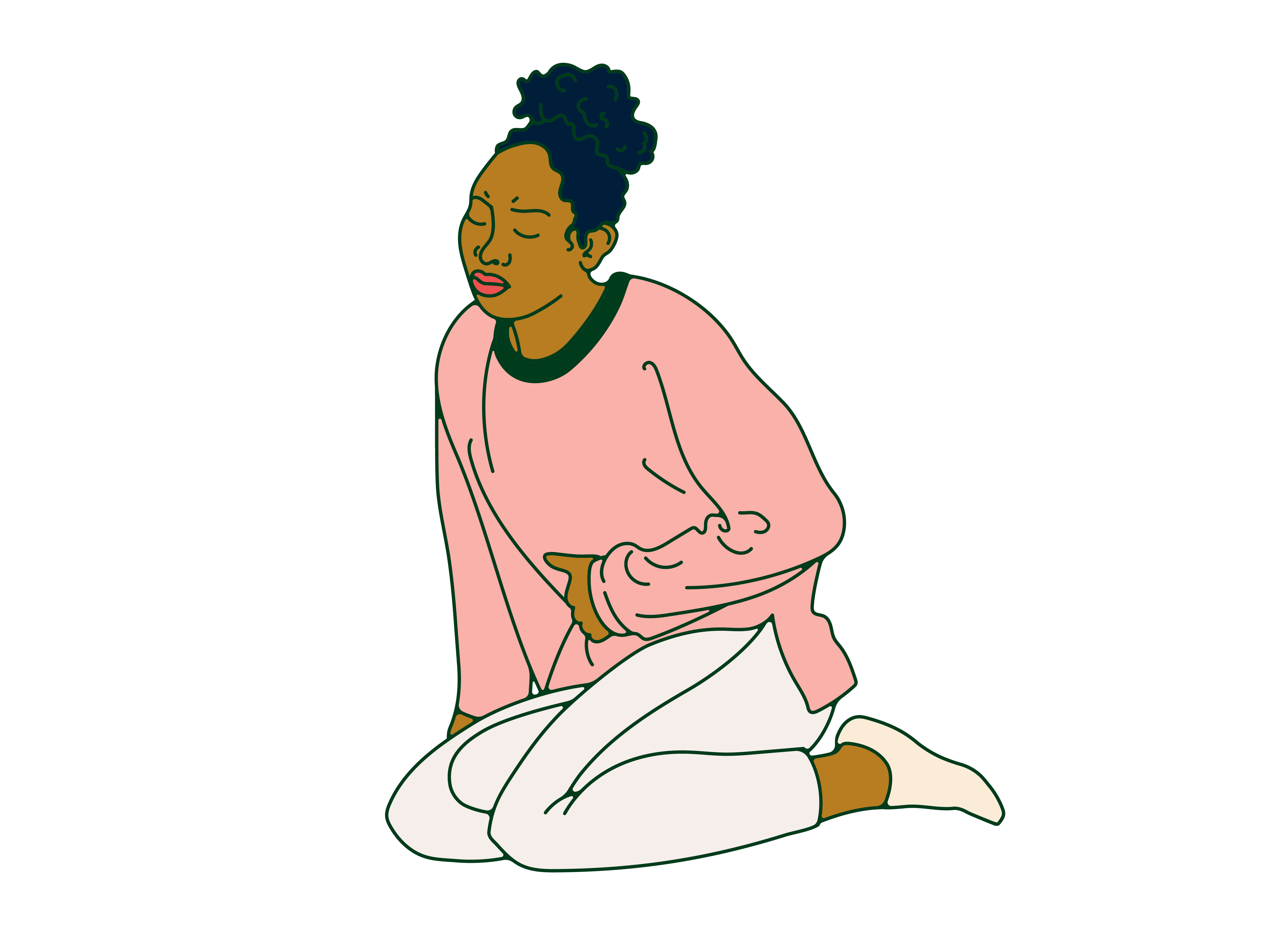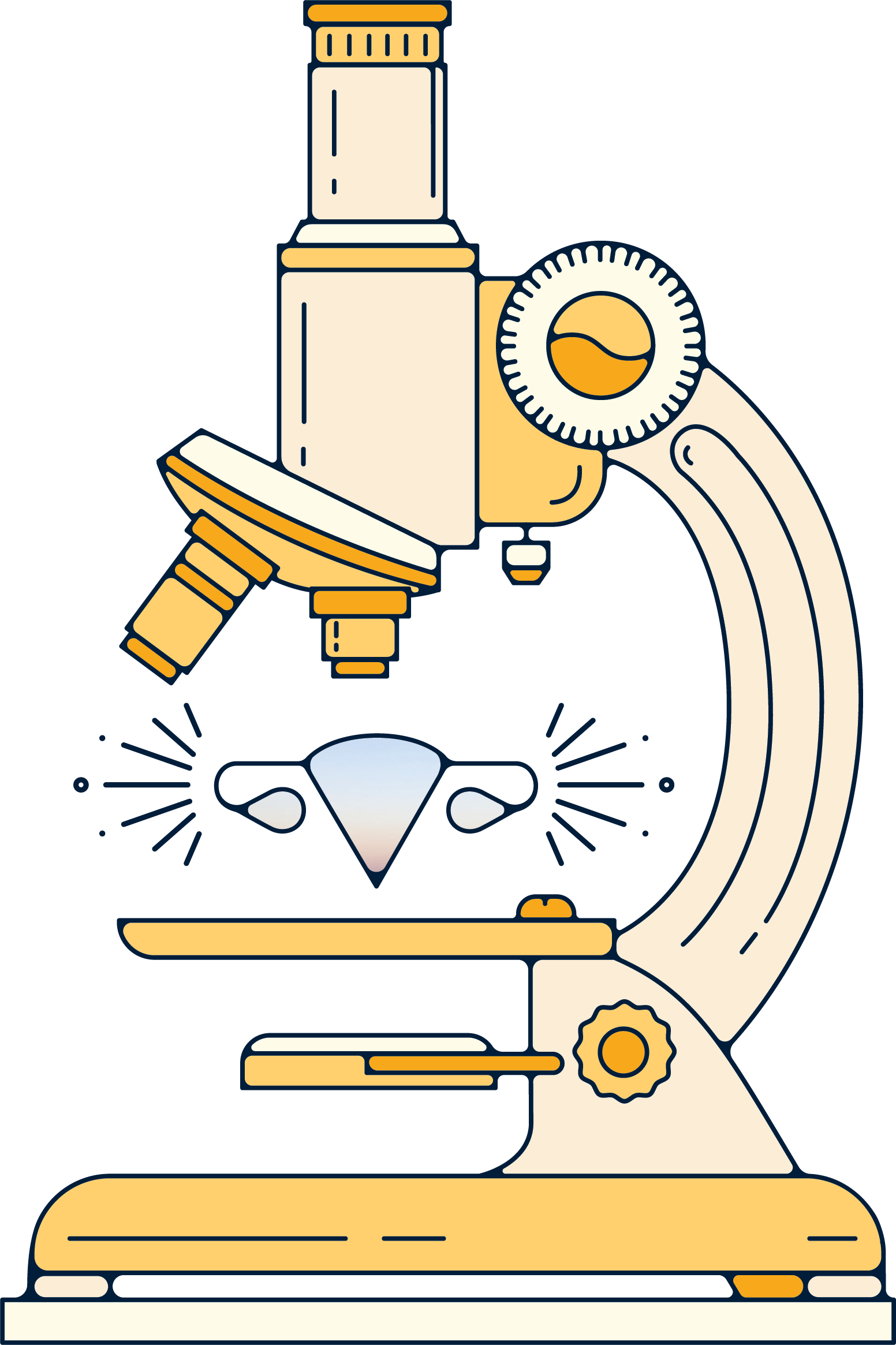Illustrated by Erin Rommel & Sabrina Bezerra
For just about any female sexual and reproductive health condition you’ll find a fun, pink, illustrated Instagram feed full of opinions and true-life stories – be it vaginismus, PMDD, or endometriosis.
Cultural moments like the release of Netflix’s Sex Education and the rise of FemTech have incited a social shift towards discussing sexual health openly, and now it seems like a new Instagram account centred around sexual health pops up daily.
However, with the NHS as underfunded and overwhelmed as ever, many are using these accounts to self-diagnose, replacing the traditional GP visit.
Research released by the Terrence Higgins Trust shows the local authority public health budget was cut by £700 million in terms between 2014/15 and 2019/20. The cuts to funding have led to sexual health service budgets being cut by 25% in this time, having a direct impact on access to diagnoses and treatment.
NHS gynaecologist Dr. Nitu Bajekal says easy access to information via social media has led women to diagnose their own sexual health conditions increasingly, “especially while the pandemic has made it harder to access healthcare.”
It’s unsurprising people of marginalised genders are self-diagnosing through social media increasingly often.
A Nature Communications study found that on average, it takes women four more years to get diagnosed with the same condition than men, and another study revealed women are more likely than men to be wrongly diagnosed. Women of colour are especially affected by medical bias.
“
It takes women four more years to get diagnosed with the same condition than men
Dr. Bajekal believes social media can be a positive thing for women’s self-education on particular conditions and symptoms, “as long as they know to use reliable information.” She notes that women can also identify a need for a second opinion from social media, “especially if they feel they have not been taken seriously.”
Instagrammer Sarah Rose has endometriosis, first noticing symptoms at 10 years old. She runs the My Pelvic Pain account on Instagram, which is where she first self-diagnosed the problem.
“I had a feeling Instagram was the place [where I would get help]. I set up my account, shared my symptoms and was inundated with messages asking me if I had been investigated for endo.”
For Sarah, reading through the symptoms felt like a gut-punch. “Everything I’d been going through was right there [on Instagram]. I realised I had every endo symptom.”
Sarah lives in Northern Ireland, where sexual health services are bleak, so she travelled to England to see a specialist for her symptoms.
She explains that self-doubt is a reverberation of having a condition like endo, saying: “Having your pain constantly downplayed leaves you feeling like you’re exaggerating. I needed someone to assure me that I wasn’t, to believe me and help me.”
“
Having your pain constantly downplayed leaves you feeling like you’re exaggerating. I needed someone to assure me that I wasn’t
Six months after discovering endometriosis on Instagram, Sarah received a private diagnostic laparoscopy with excision surgery after learning about it on Instagram. This was financially straining, but she believes she wouldn’t have received diagnosis without it.
“That’s why social media is so important,” she says. “It’s a vast pool of resources without barriers. We have access to knowledge that wasn’t available for generations before us. It’s incredibly empowering – I wouldn’t be diagnosed without Instagram.”
Although Sarah is glad to have received treatment, her overall experience with doctors has been negative. It took Sarah 10 years from adult symptoms showing to get a diagnosis and has found medical professionals are still reluctant to help.
Endometriosis is not the only reproductive health condition with a tricky diagnostic process. 25-year-old Hannah* first noticed she had vaginismus symptoms when she tried to have sex for the first at 16, but didn’t have the terminology to-hand. “I just thought there was something wrong with me. I wanted to have sex, but my vagina wouldn’t let me,” she says.

Five years later, she discovered The Vaginismus Network on Instagram, an online community for people with the condition. She could now put a name to her experience.
Through The Vaginismus Network, she self-diagnosed vaginismus – a psychosexual condition causing involuntary pelvic floor contractions – and has been treating her symptoms since, without a medical diagnosis.
Rosie, who runs Instagram account VaginismusWho, has received a vaginismus diagnosis from a GP – though the doctor was openly confused about the condition. He recommended dilators, telling her there were no other treatment options.
Like Hannah, Rosie later found The Vaginismus Network on Instagram, and realised there were many alternative treatments available, and she could have been referred for psychosexual therapy.
“Even if you get a diagnosis, many people still don’t get the help they need,” she says.
She now volunteers for The Vaginismus Network, and says they’re often contacted by people who’ve had their symptoms dismissed by doctors.
“We hear a lot of things like ‘my GP just told me to have a glass of wine and try again’ or ‘my doctor says I should try more foreplay.”
However, The Vaginismus Network’s team believe the problem goes further than GP experiences.
“
We hear a lot of things like "my GP just told me to have a glass of wine and try again" or "my doctor says I should try more foreplay"
Rosie points out that, for most sexual and reproductive health conditions affecting people AFAB, there’s shame attached.
“A lot of people feel embarrassed, like they can’t tell anyone. Not even their friends or partners. So they’re obviously terrified to see a doctor.”
She believes this culture of shame has also contributed to the lack of research funding for sexual health conditions affecting women.
The absence of priority regarding gynaecological health issues is obvious. When searching “erectile dysfunction”, for example, WebMD generates 1,441 results of news, surveys and studies compared with only 18 for “vaginismus”.
“Many people end up flying under the radar and never seeking the help they need,” Rosie says.
Rosie explains that self-diagnosing sexual health feels comfortable for a lot of people AFAB.
“When you suddenly find a community online of people who really are explaining your condition the same way you have experienced it and expressing why they might want to change that for themselves, it makes you feel seen,” she says.

Though they can be tricky to obtain, there are pros to receiving a medical diagnosis. In fact, going without one comes with risks.
Dr. Bajekal warns that incorrect diagnoses can occur, especially in situations where unqualified individuals or organisations make unvalidated claims or recommend treatments without proven value. She stresses the urgency of healthcare providers doing better.
“However hard-pressed health services are, devoting time to public education, guiding women to take control of their health, and providing reliable resources is still important. Being dismissive of women’s symptoms is harmful, as many may turn to unreliable sources for help,” she says.
Ultimately, social media can provide solidarity and support for marginalised genders experiencing sexual health problems.
But the reliance on them – paired with the lack of support often found in medical environments – exposes a deep-rooted problem.
Something many of these Instagram accounts are working towards is campaigning to engage political figures and governing bodies.
Often, this type of action works. On March 6, 2021, the UK government announced a "12-week call for evidence" to help policymakers build a new Women's Health Strategy. The government have noted that "less is known about conditions that only affect [cis] women".
Hopefully, with enough awareness, critical research and funding into women’s reproductive health conditions can be actioned and Instagram communities will be a welcome support system, rather than a murky alternative to GPs.
*Names have been changed for privacy






